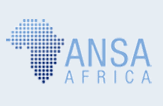The petroleum and poverty paradox: assessing US and international community efforts to fight the resource curse
October 2008
U.S. Government Printing Office, Washington
At present, about 3.5 billion people live in countries rich in extractive natural resources such as oil, gas, solid minerals and timber. With good governance, these resources can generate vast sums to foster growth and reduce poverty. However, many of these countries have weak governance and the revenues have resulted in corruption and conflict.
At the direction of Ranking Member Richard G. Lugar, the minority staff of the Senate Foreign Relations Committee undertook a study of transparency in extractive industries as part of the committee’s oversight responsibilities. Transparency is a key issue for promoting United States foreign policy and security interests, including energy security, combating corruption, and delivering the benefits of natural resources production for development. The effort is similar in scope to the ‘‘Embassies Grapple to Guide Foreign Aid’’ study issued in November 2007 and the ‘‘Embassies as Command Posts’’ study completed in December 2006.
Through meetings, site visits and document reviews, staff members tested the viability and efficacy of policy recommendations for improving three levels of transparency: in revenues earned by resource rich countries; in expenditures made by those countries; and in their investment strategies. Staff also examined the impact of international transparency efforts such as the Extractive Industry Transparency Initiative (EITI), the G-8 initiatives, the IMF Resource Revenue Guide, the World Bank Anti-Corruption and Governance Strategy, and others.
Staff drew on information gathered on travel to countries in: Africa (Angola, Chad, Equatorial Guinea, Ghana, Nigeria); Asia (Cambodia, China, Indonesia, Timor-Leste, Vietnam); Europe and Central Asia (Azerbaijan, Kazakhstan, Norway, Russia, United Kingdom); Latin America (Brazil, Chile, Peru); and the Middle East (Iraq, Saudi Arabia, United Arab Emirates). Overseas, staff met with foreign government officials, international organizations, members of the business community, and representatives of civil society.
In Washington, D.C., committee staff met with officials from the National Security Council, State Department, U.S. Agency for International Development, Treasury Department, U.S. Trade Representative, Commerce Department, Bureau of Land Management, Mineral Management Service, U.S. Forest Service, U.S. Geological Survey, World Bank, International Monetary Fund and Inter- American Development Bank, as well as representatives from nongovernmental organizations, advocacy groups, industry organizations, energy, extractive and financial companies, and academics.
|

